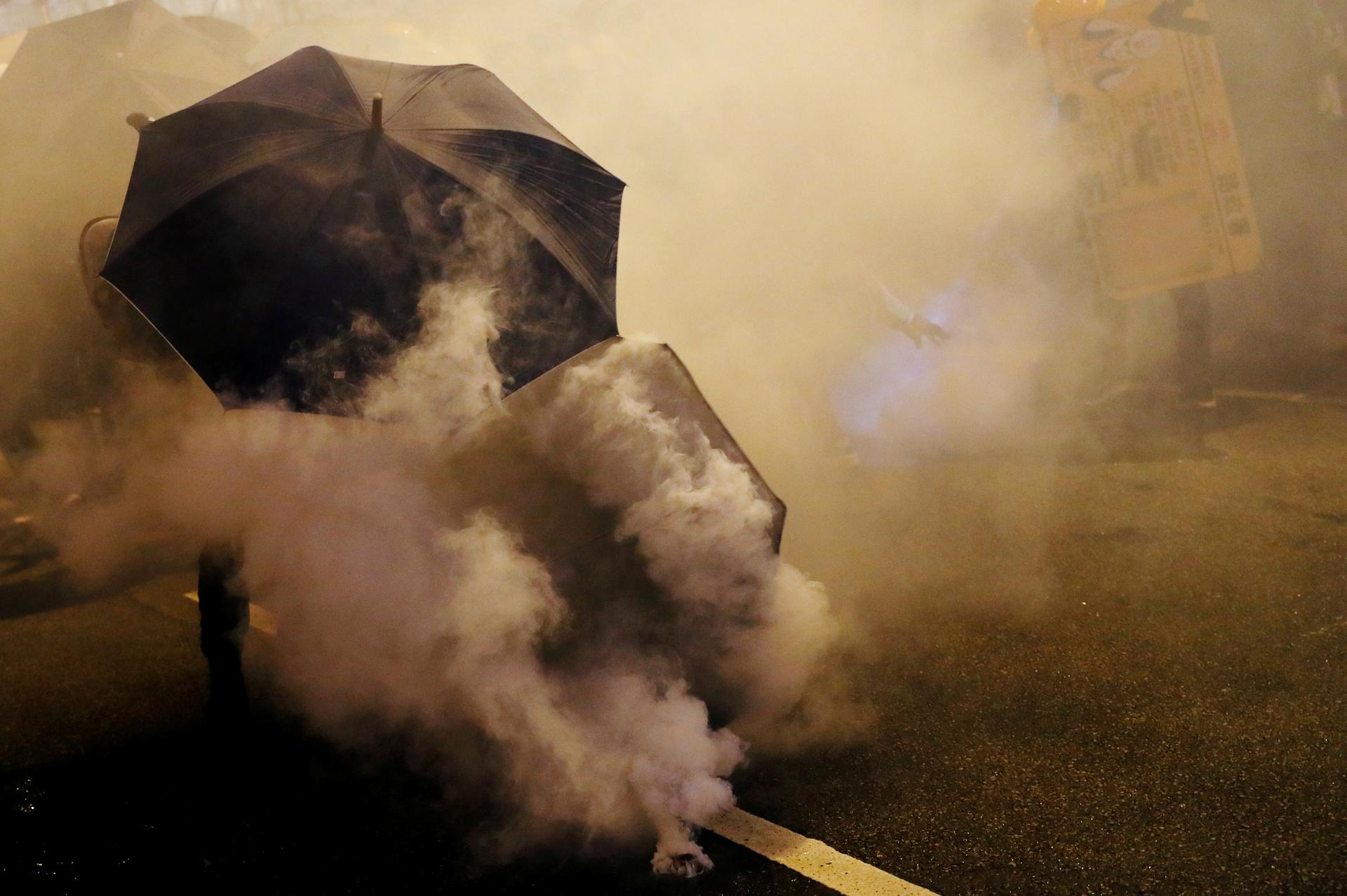Tear gas is a chemical weapon used all over the world by law enforcement to control riots and disperse crowds — from the United States to Hong Kong, to Venezuela. Despite its frequent use, various international treaties have ruled the use of tear gas illegal in wartime.
Related: The global tear gas business is booming. It’s complicated.
To help understand the legality and effects of tear gas, The World’s host Marco Werman spoke to Jamil Dakwar, director of the human rights program with the American Civil Liberties Union.
Related: Hong Kong protests continue despite crackdowns
Dakwar says that tear gas really is a chemical weapon — a material developed early on in the first World War that has caused thousands of deaths. “Then, it was developed into the more modern tear gas,” Dakwar says. “It causes serious burning, feelings of suffocation and obviously, tearing. It’s used now more massively than ever by law enforcement.”
Marco Werman: Are there different classes of tear gas? Is there a tear gas being used today on civilians that is not lethal?
Jamil Dakwar: Well, it is considered a less-lethal weapon when it’s used outdoors. In general, it could be lethal. In fact, there are incidents where people were killed by these canisters. The problem with tear gas is that it’s also an indiscriminate weapon. If you think about the way that it’s being deployed, it doesn’t really distinguish between young people and elderly, the healthy and the sick, people who are peaceful protesters or those who are using violence. But the idea is that this has become the first trigger — the first thing that law enforcement would use — as if it is going to be the way to de-escalate and end the protest. Most of the time, it’s really used to suppress protest and that’s really one of the fundamental problems with it.
Why do you at the ACLU see tear gas as a problem?
The ACLU has been monitoring the use of tear gas by law enforcement for decades. We have unfortunately seen not only the use of tear gas by law enforcement but also by Border Patrol agents against migrants. It was used against families and children who were asylum-seekers. Children, in particular, are more vulnerable to tear gas because tear gas is heavier and stays on the ground and their lungs are smaller, so they are usually the first casualties of such weapons. We have been very concerned about the deployment of tear gas. We hope that those images that we see around the world from Puerto Rico to Hong Kong and the United States will lead to international action.
Related: Mexico calls for ‘full investigation’ of US tear gas at border
Right, the Geneva Convention bans the use of tear gas from war. Why is that not mandated for civilians?
It really goes back to the Chemical Weapons Convention. At the time when it was negotiated in the 1990s, there was a lot of pressure to ban chemical weapons and they were used by law enforcement. That obviously got pushback from many countries who said, “Well, we can’t really give up this weapon because if we don’t use tear gas we will have to resort to more lethal weapons.” The compromise that was reached was to leave that option open for using tear gas or riot control agents in law enforcement and only in law enforcement.
What happens when protests get violent? Some have argued that in violent protests, it’s necessary in those cases to use tear gas. What are your thoughts on that?
Particularly when it comes to tear gas, we’re not suggesting that it should never be deployed. The question is when do you deploy it? When do you resort to that? There has to be layers and layers of de-escalation — steps and actions taken by law enforcement — before you reach that point. Perhaps, in the future, we will have a federal government that will really do the right thing by changing the rules, amending the laws and bringing this under control.
This interview has been edited and condensed for clarity.
